2021 Pan-Tongji Design Week
ShanghaiTech University Sub-Forum
Successfully held
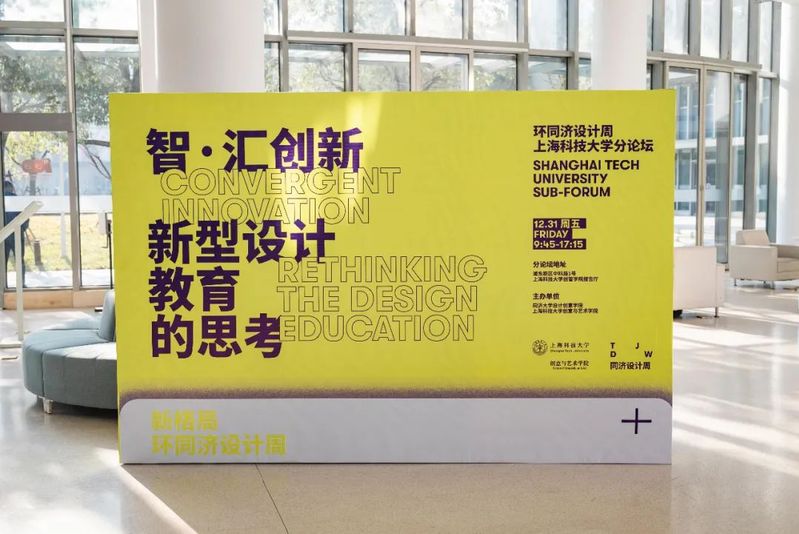
On December 31, 2021, the School of Creativity and Art of ShanghaiTech University and the School of Design and Innovation of Tongji University successfully jointly held Pan-Tongji Design Week ShanghaiTech University Sub-Forum. With the theme of "CONVERGENT·INNOVATION, RETHINKING THE DESIGN EDUCATION", the forum invited guests from two universities to discuss the link between technology and design and explore intelligent design from the three dimensions of design education, industrial practice and integration of science and art. In the relationship between virtual and reality, plan the future of intelligent design education.
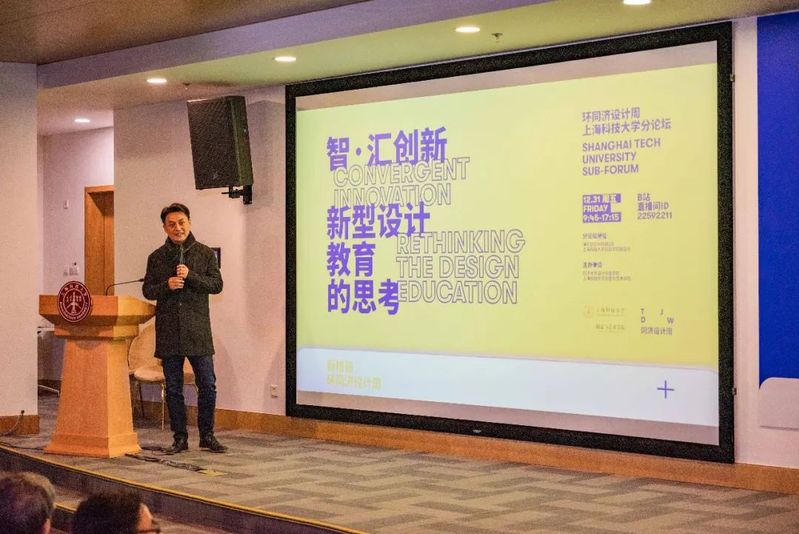
In the information age of economic globalization, new technology clusters are pushing human civilization to a new stage. Big data, artificial intelligence, advanced intelligent manufacturing, green technology, etc. have created new patterns, technology and social development have become closer, and professional boundaries are becoming Dispelled, new things continue to emerge. The object, content, process and method that design faces in the process of problem solving will also face huge challenges. Design education, design research, and design practice will inevitably blend with cutting-edge technology and evolve together in the fields of technological innovation, cultural innovation, and business innovation. In 2021, the industrial design (intelligent design) major of the School of Creativity and Art of ShanghaiTech University came into being, exploring the establishment of a new design education paradigm in a small-scale, high-level, international research-oriented and innovative university. It is the challenge and opportunity given by the times.
This forum is divided into three sessions, namely "A new paradigm of intelligent design under boundary resolution"、"The new trend of integration led by intelligent design"和"Design Creativity under IntelliSense".
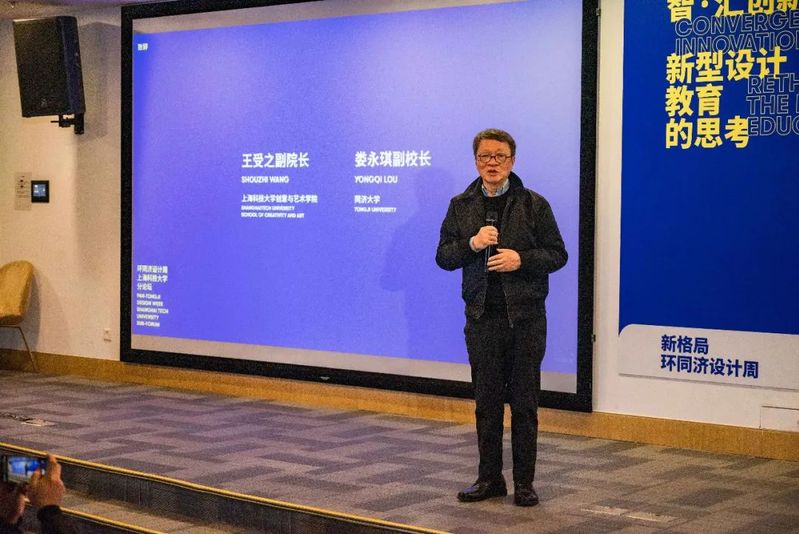
On the same day, Yongqi Lou, Vice President of Tongji University, and Shouzhi Wang, Vice Dean of the School of Creativity and Art, delivered opening speeches respectively. Dean Shouzhi Wang introduced the original intention of the establishment of the intelligent design major and the prospect of intelligent design education. Vice President Yongqi Lou made use of the opportunity of this forum, reviewing the transformation of the 10th anniversary of "Tongji Design Week" to "Pan-Tongji Design Week", and promoting the all-round cooperation between the two colleges in student exchanges, teacher interaction, experimental platform sharing, etc., and hope to promote design together Play a bigger role in Shanghai's science and technology city.
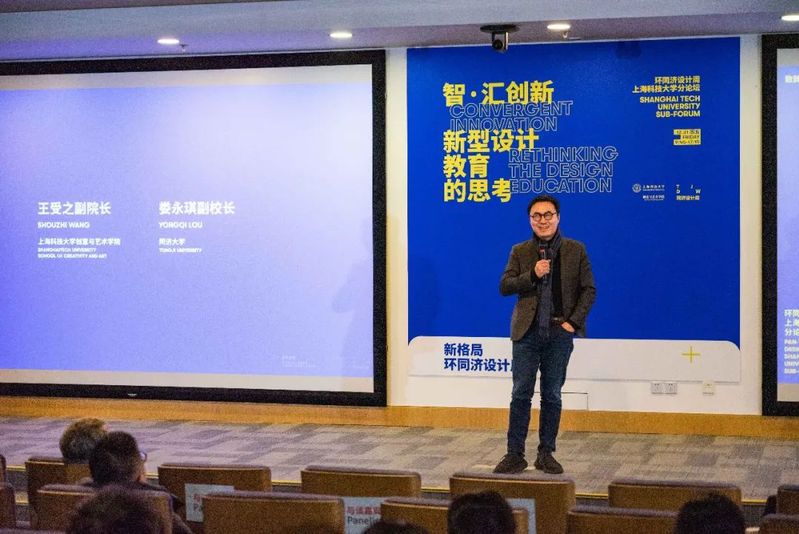
The first session of the forum was given by Professor Nan Cao, director of the Intelligent Big Data Visualization Laboratory of Tongji University, and Professor Mingde Gu, Director of Lab for Experiential and Affective Design (LEAD Lab) of the College of Creativity and Art.Nan Cao discussed the relationship between information technology and design education from the perspective of artificial intelligence. "The paradigm of intelligent design education includes three steps: the first step is to let the computer understand design, the second step is to let the computer learn to design, and the third step is to realize the collaborative design of human and computer, said Cao Nan, this requires design The collaboration of engineers, algorithm engineers, and software engineers."
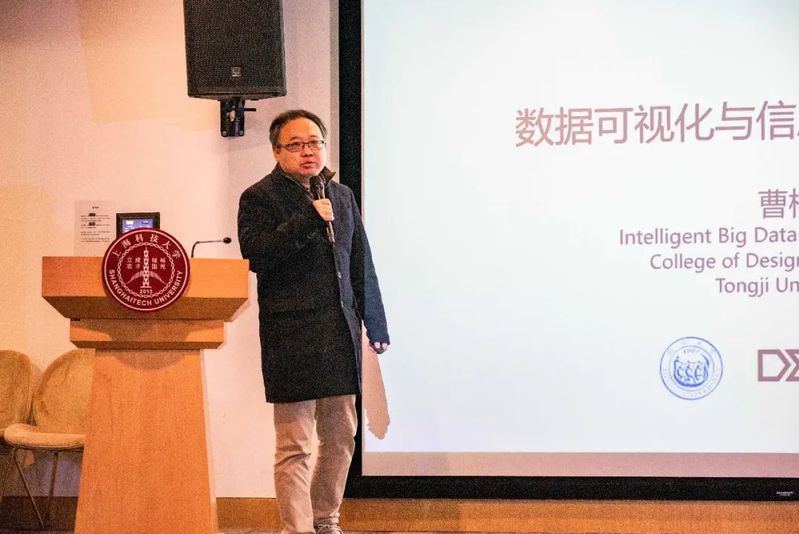
Mingde Gu, taking the well-known designer Raymond Loewy as an example, told the audience about the development and evolution of design. He believes that high technology represents many future competitive forces, but high technology cannot be equated with intelligent design. Mingde Gu said: "The focus of design is not to invent new technologies, but to invent new experiences. SEE Difference, THINK Difference, and MAKE Difference are the keys to it."
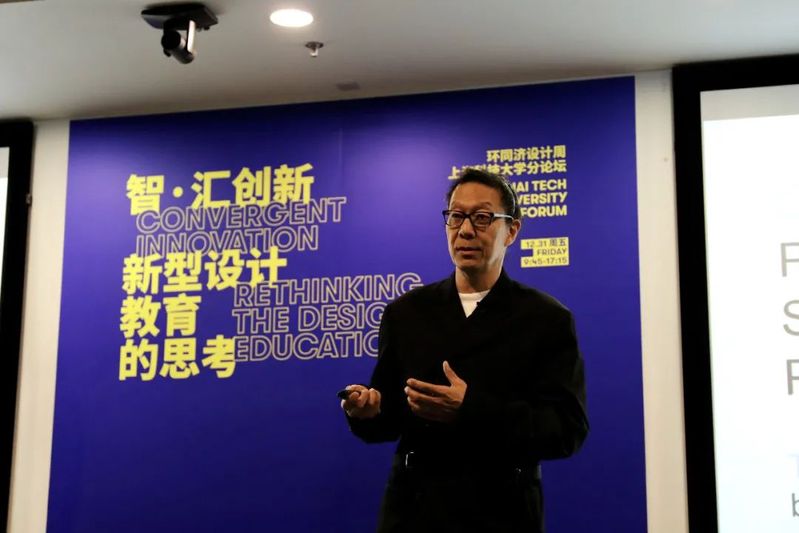
In the first forum in the afternoon, the speakers were Professor Haofen Wang, Distinguished Researcher of the Hundred Talents Program of Tongji University, and Professor Hua Yang, Executive Director of Design Interaction Visual Lab (DIV Lab) of the School of Creativity and Art. The discussion revolved around the keywords of "artificial intelligence", "digital twin" and "interdisciplinary design education". Talking about the interdisciplinary education of design, Yang Hua said, "In addition to the traditional design ability, the designer has a very important ability to integrate. Don't be afraid to try when the technology is immature, because it provides designers with continuous Possibilities of exploration and research."
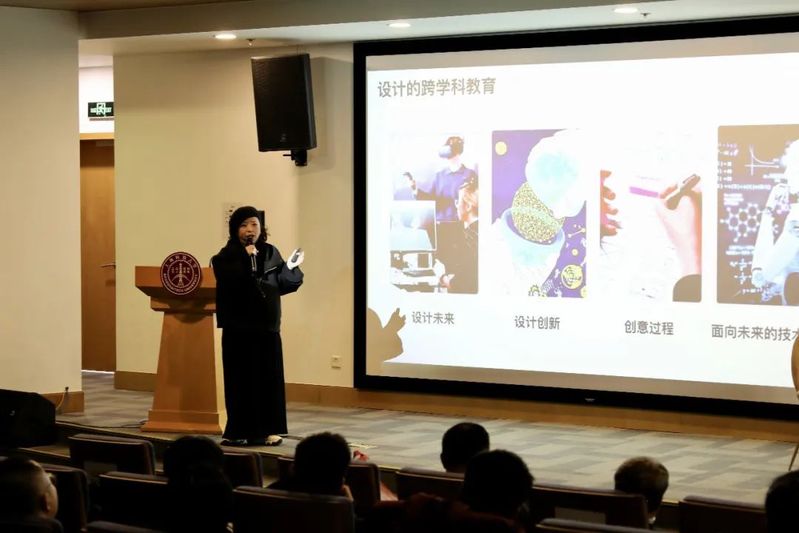
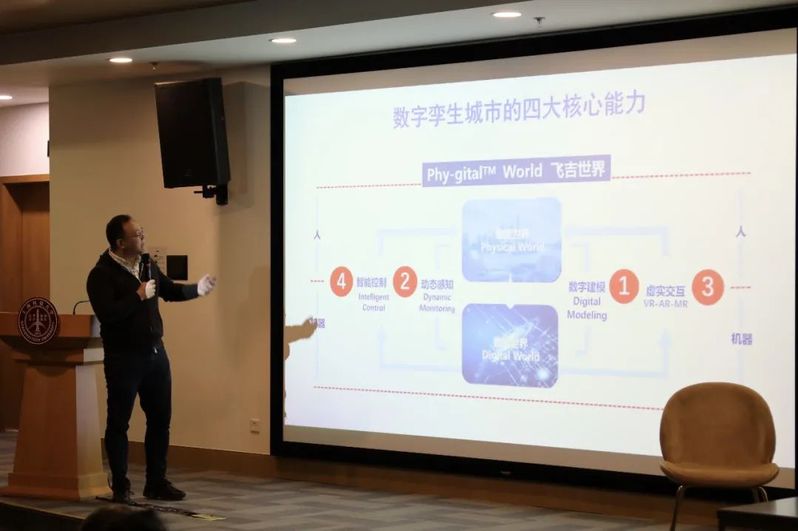
In the third forum, Professor Xin Xiangyang, founder of XXY Innovation Design Thinking and Strategy Consulting, took the topic of The Essence of Technology, took the development history of computers as an example, and explained the technology to the audience with very solid graphic logic. Graph relationships between industries. Xin Xiangyang said, Technology is not only hardware and software, but also includes many little ideas. It is these ideas that gradually blur the relationship between technology, innovation and design.
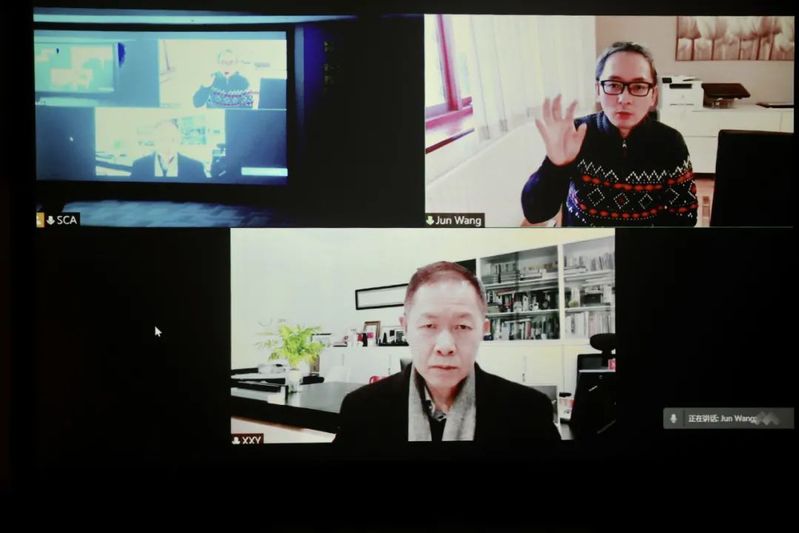
Later, Jun Wang, Distinguished Professor of Artificial Intelligence and Digital Art Lab (AIDA), decomposed the process of human cognition of the world, introduced the principles of artificial intelligence and machine learning in simple terms, and showed you the multi-scenario application forms in the field of art.
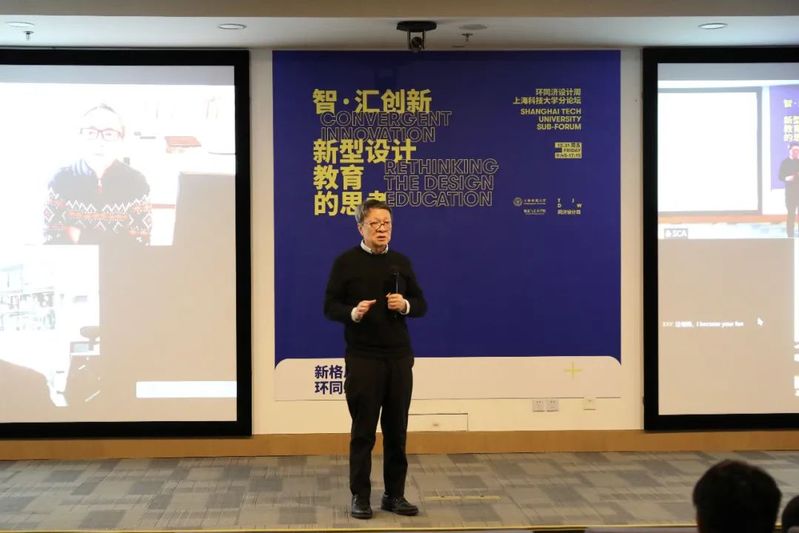
Professor Shouzhi Wang, "Associate Dean, said: Thanks to Tongji University for giving us the opportunity to discuss such a big issue as design and design education.It is an opportunity bestowed by the times for the School of Creativity and Art to create a design major in a small-scale, high-level, international research-oriented and innovative science and technology university like ShanghaiTech University. It is hoped that together with the School of Design and Innovation of Tongji University, we will jointly promote the development of intelligent design education and promote design to play a greater role in the development of Shanghai's science and technology city."



